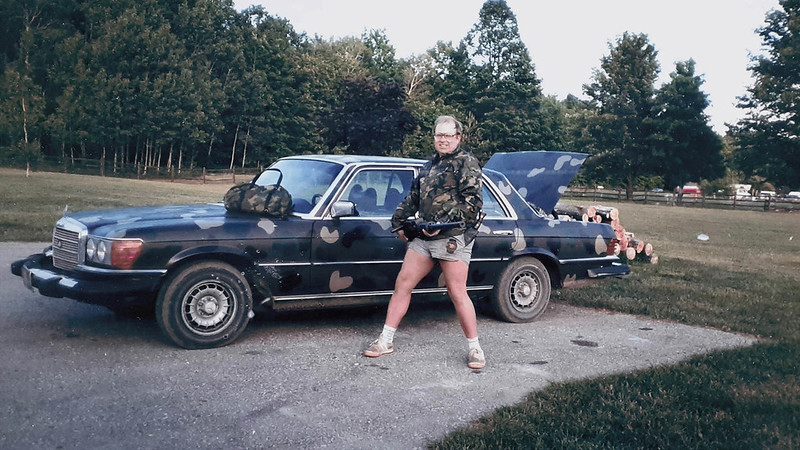![]() In a famous passage in Cormac McCarthy’s Blood Meridian, the judge, who is the novel’s grim, satanic core, states that “It makes no difference what men think of war. War endures. As well as ask men what they think of stone. War was always here. Before man was, war waited for him. The ultimate trade awaiting its ultimate practitioner. That is the way it was and will be. That way and not some other way.”
In a famous passage in Cormac McCarthy’s Blood Meridian, the judge, who is the novel’s grim, satanic core, states that “It makes no difference what men think of war. War endures. As well as ask men what they think of stone. War was always here. Before man was, war waited for him. The ultimate trade awaiting its ultimate practitioner. That is the way it was and will be. That way and not some other way.”
Richard Davis, the man who invented the modern-day bullet proof vest, would likely agree with this pronouncement. He makes it clear early on that he views his work as just one installment in an age-old struggle between those who survive and those who don’t. He cites animals with armored hides as an example from nature of said struggle, and he cites them again toward the end, referring to those with eyes on the sides of their heads (cows) as proof that nature has prepared us for inevitable adversaries.
Violence is, in his eyes, a fact of life, and his company, Second Chance, was founded in anticipation of it. His second wife, Kathleen Davis, when asked to name the primary motivating force in Richard’s life, says “passion.” This seems to be a correct assessment. Numerous video clips in which he tests his recently designed vests by shooting himself in the chest attest to his unbridled love of his work for its own sake. Perhaps just as important is a need to be loved, especially by those his vests have saved. Nevertheless, there is much more of the man, and the work, that director Ramin Bahrani exposes in this engrossing documentary. At the end, there is a strong argument that he has done more harm than help, to say the least.
Davis’s story is, on its surface, a classic American tale: a not-quite rags-to-riches beginning, followed by success that swells until it gets out of hand. Here, there is a close save in which, after Second Chance goes bankrupt, Davis’s son, Matt, establishes a new body armor company, and the scandals that led to his father’s previous bankruptcy are more or less forgotten.
Bahrani’s approach in telling this story is conventional yet effective, comprising a mix of interviews, narration, excerpts of archival footage, and analysis. He moves through Davis’s career chronologically, interviewing his ex-wives, business partners, his son, his friends, and a variety of critics (a category that does not necessarily exclude the aforementioned individuals). Throughout, Davis states his belief that his products save lives, and there are indeed stories and statistics to back up his claims. He mentions his father’s history fighting in Iwo Jima and his fears that he would hear of his father’s death while waiting for him to return home (his father came back alive, and was an important motivating force in his life). None of the soldiers fighting at Iwo Jima, Davis notes, had any chest protection. He references the many people throughout history who might not have died had they worn one of his bulletproof vests.
Bahrani does not overstate his own take on his subject and, frankly, he doesn’t have to. On one hand, Davis reveals himself as both righteous and shameless on a number of his views (the justness of the Iraq War, that anyone who shoots at a cop deserves to be killed). On the other, his practices over the years speak for themselves. Here is a small taste. The many videos he created to promote his products for police speak plainly to his far-right politics in that they played on fears that anarchist groups were out to kill cops. Furthermore, early on, he had a policy in which he would reward cops wearing Second Chance vests with a gun if they managed to execute their assailant.
Add to that a complete lack of willingness to confront any problems caused by defective products. This takes the form of firing an employee who noticed problems with the new design of a vest. The lawsuits that result, and the testimony of the various offended parties, help to form a portrait of a man who is as much about saving himself and bending the truth as he is about preserving lives.
Bahrani’s achievement in this strong, well-rounded documentary is precisely this: to have crafted an unforced critique of a businessman and his practices without forgetting that a complex person lies at the center. Perhaps most chillingly, Davis is not wrong per se when he says that the violence that makes his product necessary isn’t going anywhere.







Leave A Comment